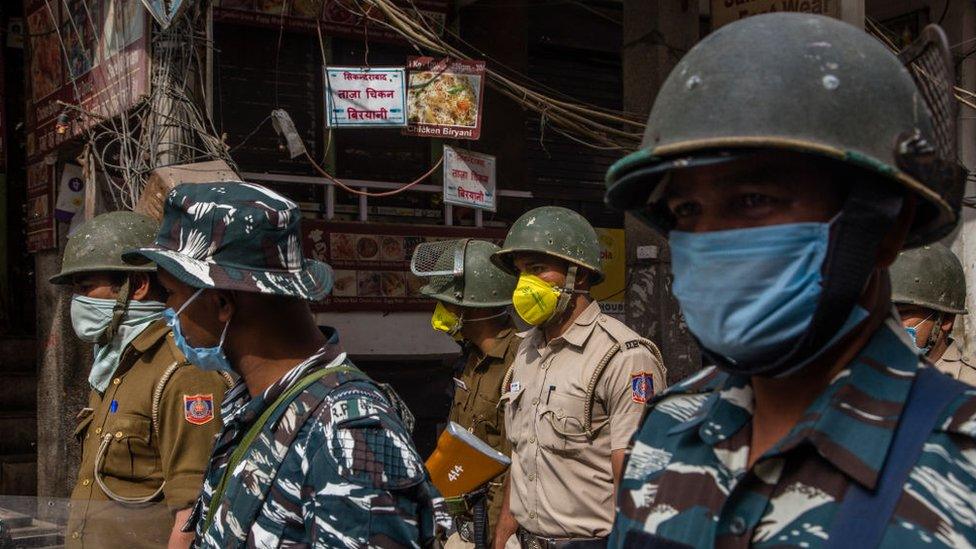Coronavirus: India holds lights-off vigil as Modi calls for unity
- Published
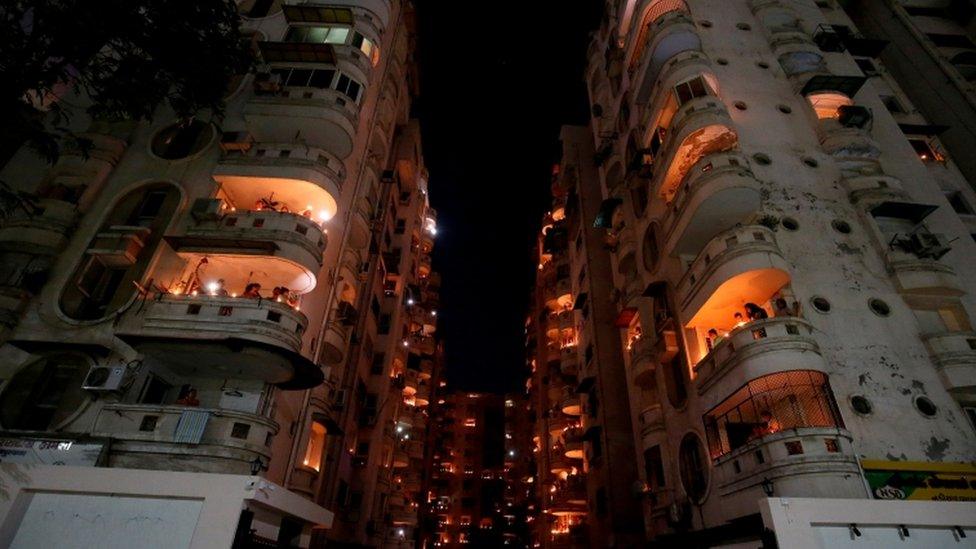
India's prime minister called on the country to "challenge the darkness" of coronavirus
Indians have turned off their lights for a nationwide candle-lit vigil, heeding a call for unity as the country battles coronavirus.
Prime Minister Narendra Modi asked India's 1.3 billion citizens to observe nine minutes without electricity at 21:00 local time (16:30 GMT) on Sunday.
He urged them to "challenge the darkness" of Covid-19 by lighting candles and lamps.
Millions responded, lighting up the night sky in a show of unity.
"Salute to the light of the lamp which brings auspiciousness, health and prosperity, which destroys negative feelings," Mr Modi tweeted at the time of the vigil.

But critics have dismissed the event as a stunt, arguing it distracted from the health and economic crisis caused by the coronavirus pandemic.
Mr Modi imposed a nationwide lockdown on 25 March, announced with little warning, leaving millions stranded and without food.
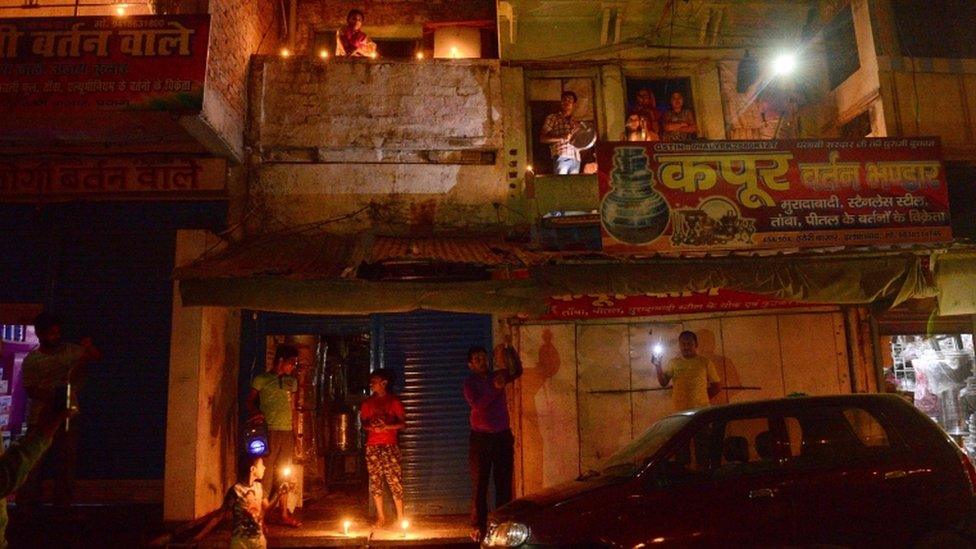
Millions of Indians observed the nine-minute vigil called for by Mr Modi
There have been more than 3,500 confirmed infections and around 100 deaths from Covid-19 in India, the latest figures from Johns Hopkins University say, external.
The true figures, however, are thought to be far higher. India has one of the lowest testing rates in the world, although efforts are under way to ramp up capacity.
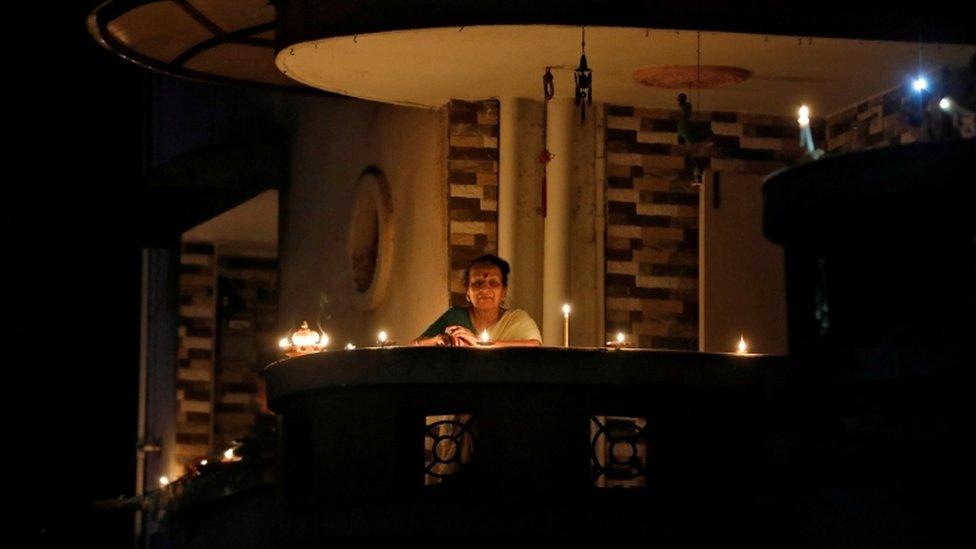
India has been under lockdown since 25 March
There are fears that a major outbreak in the country - one of the world's most densely populated - could result in a humanitarian catastrophe.
People are banned from leaving their homes under the lockdown measures. All non-essential businesses have been closed and almost all public gatherings are banned.
As cases of coronavirus rise and the virus hits India's congested slums, will the country cope?
But the shutdown sparked an exodus from major cities such as Delhi, forcing thousands of migrant labourers to walk hundreds of kilometres to their native villages.
Last week, Mr Modi apologised for the impact of the strict stay-at-home measures, saying there was "no other way" to stop the spread of the virus.
The PM said the restrictions would remain in place for 21 days, but officials have warned that the lockdown could be extended in parts of the country.
- Published29 March 2020
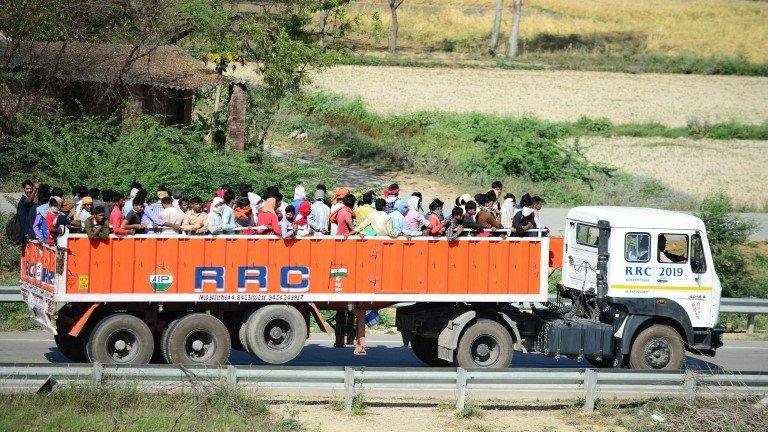
- Published28 March 2020
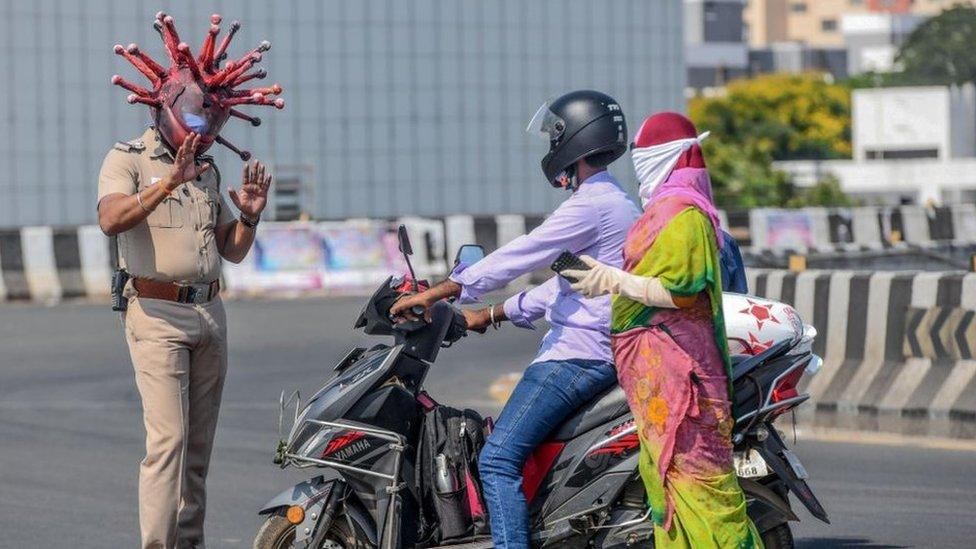
- Published25 March 2020
